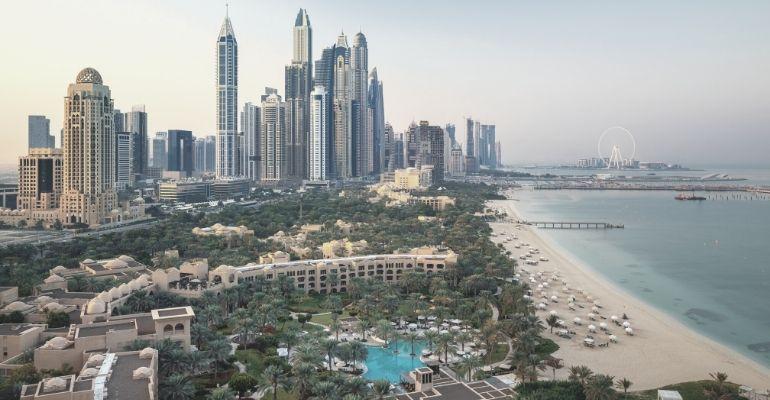Effective vaccination drives, new residency and work visa options, and ease of international travel indicate that the UAE real estate market has much to look forward to in the second half of 2021.
A recent report by CBRE notes that these efforts, in addition to a global economic rebound, and the Dubai Expo 2020, could lead to new structural trends in the real estate market, while accelerating existing ones.
H2 2021: REAL ESTATE MARKET TRENDS IN THE UAE
- RESIDENTIAL: The UAE will continue to be a tenant-led market, with occupiers looking to strike the best bargain with landlords, amidst flexible incentives such as rental reductions, rent-to-own schemes, and fee waivers. The CBRE report adds that green housing can expect to receive a boost due to work-from-home norms and the Dubai 2040 Urban Master Plan. A sustainability focus could be a key business success indicator going forward.
- OFFICE: Flexibility remains the dominant theme for the office real estate market. The desire for hybrid work options will reflect in flexibility in lease terms and tenures, and “physical” – both physical and digital – experiences. Emerging trends in this space include ESG, and employee health and welfare. Further, supply of units and rental performance are expected to continue to face some pressure from an influx of sub-lease space.

- RETAIL: The growth of ecommerce is likely to push a focus on omnichannel supply chain, workforce and inventory strategies, while at the same time retaining the physical retail experience. In addition to the boom in electronics purchases, quick service restaurants, grocery and homeware segments, will lead recovery in this sector. Occupiers will likely be on the lookout for store size optimisation, and flexibility in lease terms and the space itself.
- HOSPITALITY: While the pressure on the tourism sector is unlikely to ease too quickly, domestic tourism and staycations will continue to be a top trend for this sector. The mid-to-long term outlook remains optimistic, amidst government efforts to bolster tourism in the country.
- INDUSTRIAL: Demand is expected to rise mainly from logistics grade warehousing. Grade A warehousing and multi-channel supply chains remain popular amongst investors, with food and cold storage space also catching speculative investor interest.
Additionally, data centres, and flexible co-living and co-working spaces are also gaining prominence in the real estate market. Overall, while performance in the residential and office sectors are expected to resemble that of 2020, the retail, hospitality and industrial sectors may be headed towards more optimistic trends than before.
WANT MORE REAL ESTATE INSIGHT?
Subscribe to the Cityscape newsletter here


